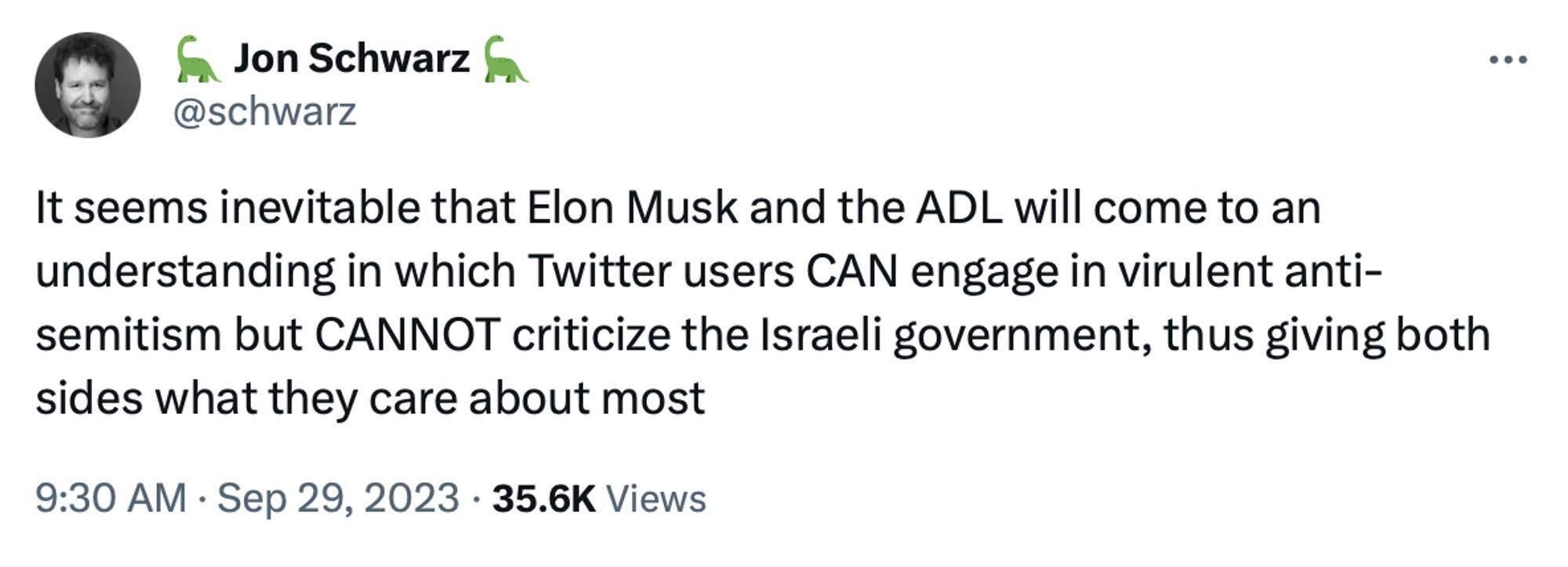Bullshit dude, bullshit. I once ate a tray of 24 assorted muffins: blueberry, lemon poppy-seed, cranberry apple, banana nut, even bran. Large muffins too, like you'd buy at the bakery, not grocery store mini-muffins. I ate the first five or six out of hunger, and the next dozen I can only attribute to gluttony, but the last half dozen were devoured by determination alone. A part of me wanted to stop— I was full, the muffins had become repulsive, and there was a disconcerting pressure in my chest. The other, stronger part of me knew that if I gave up on that muffin platter I would admit limitation. A limited man can rationalize his every weakness, turn away from every challenge, live his life within the narrow confines of comfort; that's not how I live my life. But I digress. It took six days for my bowels to move, and when they did I shat a monolithic muffin block so wide it could not be flushed, so dense it would not dissolve with repeated flushing, and so heavy it took two hands to lift. The measure of anxiety, pain, pride and love is indescribable, so don't tell me I don't understand childbirth.
emizeko
Detainees were blindfolded on arrival and left that way throughout their stay in overcrowded cells. Music blared non-stop to drown out the sounds of torture – earning the centre the wry nickname "The Disco."
"Here resounded our screams, our cries," Bataszew told AFP on a recent visit to the place of her nightmares.
The building today is a private residence despite being earmarked as a memorial site. On the street outside, an improvised metal monument displays photographs of women who never came back from "The Disco."
'More viciousness'
"Women were a tough nut to crack and... punished with much more viciousness than men," said Bataszew.
More than 40,000 people were tortured and some 3,200 were killed or made to disappear in the 17 years of Pinochet's post-coup rule from 1973 to 1990.
Torture was different for women than for men. Some of the methods included raping them in front of their partners, or inserting live rats into their vaginas.
Some 35,000 victims of the military junta gave evidence to the National Commission on Political Imprisonment and Torture in 2005, of which nearly 13 percent (3,399) were women – almost all of them subjected to sexual violence.
Victims testified of electric shocks to their genitals, or being raped with dogs trained to perform this vile act.
[...]
Cristina Godoy-Navarrete, now 68 years old and a retired immunologist, was one of the first captives at "The Disco," which was also known as "Venda Sexy" for the nature of the abuse meted out there.
"When I arrived there were only two other women. They took you to an underground area where they had equipment to apply electricity... and where they had the trained dog [for the rapes]," she told AFP from London, where she went into exile after being freed a year after her arrest in 1974.
Some of the worst punishments involved women's loved ones.
The report produced by Chile's torture commission recorded evidence of men being forced to rape their daughters or sisters.
"They held me to be tortured in front of him, as his wife," recounted Erika Hennings, wife of Alfonso Chanfreau – a philosophy student and an MIR leader still listed as "disappeared."
The retired teacher, 69, said she was detained for 17 days at the torture centre known as "Londres 38" after its street address, crammed into a room with 80 other people without beds and blindfolded for 24 hours.
"Londres 38 was a center of repression, torture... where I first encountered evil and cruelty," she recounted.
She said she was "used as a woman" to put pressure on Chanfreau.
'I get angry'
At Villa Grimaldi, yet another torture chamber, Shaira Sepulveda was held for 10 days.
"They got a special kick out of trying to denigrate, to destroy women," the 72-year-old told AFP.
Michelle Bachelet, a former president of Chile and now UN Commissioner for Human Rights, was also held at Villa Grimaldi in the 1970s with her mother Ángela Jeria.
"I get angry, I get angry, I get angry to see how they took advantage to destroy and kill our companions," Sepulveda said as she recently toured a rose garden created at the center in memory of female victims of the junta.
"They didn’t get what they wanted and I hope that someday we can have justice because they (the women) deserve it."
The foundation of irreligious criticism is: Man makes religion, religion does not make man. Religion is, indeed, the self-consciousness and self-esteem of man who has either not yet won through to himself, or has already lost himself again. But man is no abstract being squatting outside the world. Man is the world of man – state, society. This state and this society produce religion, which is an inverted consciousness of the world, because they are an inverted world. Religion is the general theory of this world, its encyclopaedic compendium, its logic in popular form, its spiritual point d’honneur, its enthusiasm, its moral sanction, its solemn complement, and its universal basis of consolation and justification. It is the fantastic realization of the human essence since the human essence has not acquired any true reality. The struggle against religion is, therefore, indirectly the struggle against that world whose spiritual aroma is religion.
Religious suffering is, at one and the same time, the expression of real suffering and a protest against real suffering. Religion is the sigh of the oppressed creature, the heart of a heartless world, and the soul of soulless conditions. It is the opium of the people.
The abolition of religion as the illusory happiness of the people is the demand for their real happiness. To call on them to give up their illusions about their condition is to call on them to give up a condition that requires illusions. The criticism of religion is, therefore, in embryo, the criticism of that vale of tears of which religion is the halo.
from https://www.marxists.org/archive/marx/works/1843/critique-hpr/intro.htm
all states are class dictatorships but only one class wants to abolish class entirely: the workers
under liberal democracy the choices presented are performatively feeling bad about exploitation (the democrats) or reveling in it (the republicans), while anyone successful enough at organizing against capital is killed by the American security apparatus
I was reading a book about American Chattel Slavery called "Slavery's Capitalism" and that book made it clear how plantation overseers would use small prizes as an incentive to get slaves to compete with each other. Two able bodied slaves might compete with each other over a cup of sugar, or a hat (commodities which they otherwise wouldn't be allowed to have), for instance. The overseers would use this to get them to reveal their capacity for excessively hard work and, this part is key, then proceed to raise the harvesting quota on all the other slaves. Failure to meet quotas would result in one whip lash per pound by which they fell short. Here's the larger quote:
In other cases, enslavers used positive incentives to get people to pick faster, setting up races between individuals with prizes like a cup of sugar, a hat, or a small amount of money. But such speed-ups shouldn't be seen simply as attempts to import positive incentives into a system dominated by negative ones. They were also tricks, designed to get enslaved people to reveal capacities they were hiding. In Georgia, John Brown's enslaver Thomas Stevens would "pick out two or more of the strongest and sturdiest, and excite them to a race at hoeing or picking, for an old hat, or something of the sort. He would stand with his watch in his hand, observing their movements, whilst they hoed or picked across a certain space he had marked out. The man who won the prize set the standard for the rest. Whatever he did, within a given time, would be multiplied by a certain rule, for the day's work." But enslavers also whipped greater picking speed out of enslaved people in the field itself, forcing their targets to devote sustained attention and unrelenting effort to their speed and accuracy (less leaves, dirt, "trash," etc. in the picked fibers). This kind of invigilation reveals yet again the major differences between the labor system used on the cotton frontier and that used in the Lowcountry. It also reveals the essence of the enslavers' plan: to force enslaved people to show their left hands. Here, on the cotton frontier, enslavers "whipped up" enslaved people to force them to reveal capacities they were hiding, or that had not yet been created. "As I picked so well at first," remembered John Brown, "more was exacted of me, and if I flagged a minute the whip was applied liberally to keep me up to my mark. By being driven in this way, I at last got to pick a hundred and sixty pounds a day," after starting at a minimum requirement of 100. "Old man Jonas watched us children and kept us divin' for that cotton all day long," remembered lrella Battle Walker, and "us wish him dead many a time."
Similarly, under post-slavery wage servitude, we are incentivized as workers to compete with each other over small concessions, small privileges, for which we are supposed to be proud of having, but our overexertion in attempting to beat each other, and win those privileges, is used to raise the expectations on everyone else. Productivity increases while wages fail to keep up with inflation. More and more surplus value is extracted by the Capitalist, and we are inundated with "hustle and grind" propaganda.
crying "whataboutism" was what the USA resorted to after they couldn't come up with a comeback against the Soviets, because every time they tried to criticize the USSR for being oppressive the Soviets would just respond with “you literally lynch black people”.
But what if "whataboutism" isn’t describing a propaganda technique, but in fact is one itself: a zombie phrase that’s seeped into everyday liberal discourse that – while perhaps useful in the abstract - has manifestly turned any appeal to moral consistency into a cunning Russian psyop. From its origins in the Cold War as a means of deflecting and apologizing for Jim Crow to its braindead contemporary usage as a way of not engaging any criticism of the United States as the supposed arbiter of human rights, the term "whataboutism" has become a term that - 100 percent of the time - is simply used to defend and legitimizing American empire’s moral narratives.
even the UN called it apartheid until the Zionists made them pull the paper
Israeli Practices towards the Palestinian People and the Question of Apartheid [PDF]
-
McCain was not tortured, PoW guard claims (archived here)
In an interview with the Italian daily Corriere della Sera, Nguyen Tien Tran acknowledged that conditions in the prison were "tough, though not inhuman". But, he added: "We never tortured McCain. On the contrary, we saved his life, curing him with extremely valuable medicines that at times were not available to our own wounded."
but in contrast the USA's Phoenix Program is well-documented
The American liberal, faced with this reality, tends to concede that truth is in fact drowned out by a relentless tide of spin and propaganda. Their next move is always predictable, however. It’s another lesson dutifully drilled into them in their youth: “At least we can dissent, however unpopular and ineffectual!” The reality, of course, is that such dissent is tolerated to the extent that it is unpopular.
Big-shot TV host Phil Donahue demonstrated that challenging imperial marching orders in the context of the invasion of Iraq was career suicide, when a leaked memo clearly explained he was fired in 2003 because he’d be a “difficult public face for NBC in a time of war.” [5] The fate of journalists unprotected by such wealth or celebrity is darker and sadder. Ramsey Orta, whose footage of Eric Garner pleading “I can’t breathe!” to NYPD cops choking him to death went viral, was rewarded for his impactful citizen journalism by having his family targeted by the cops, fast-tracked to prison for unrelated crimes, and fed rat poison while in there. [6] The only casualty of the spectacular “Panama Papers” leak was Daphne Caruana Galizia, the journalist who led the investigation, who was assassinated with a car-bomb near her home in Malta. [7] Then there’s the well-publicized cases of Assange, Snowden, Manning, etc. That said, I tend think to such lists are somewhat unnecessary since, ultimately, most honest people confess that they self-censor on social media for fear of consequences. (Do you?)
In other words, the status quo in the West is basically as follows: you can say whatever you want, so long as it doesn’t actually have any effect.
"I want no prisoners. I wish you to kill and burn, the more you kill and burn the better it will please me. I want all persons killed who are capable of bearing arms in actual hostilities against the United States," General Jacob H. Smith said.
Since it was a popular belief among the Americans serving in the Philippines that native males were born with bolos in their hands, Major Littleton "Tony" Waller asked, "I would like to know the limit of age to respect, sir."
"Ten years", Smith said.
"Persons of ten years and older are those designated as being capable of bearing arms?"
"Yes." Smith confirmed his instructions a second time.





from https://redsails.org/why-marxism/